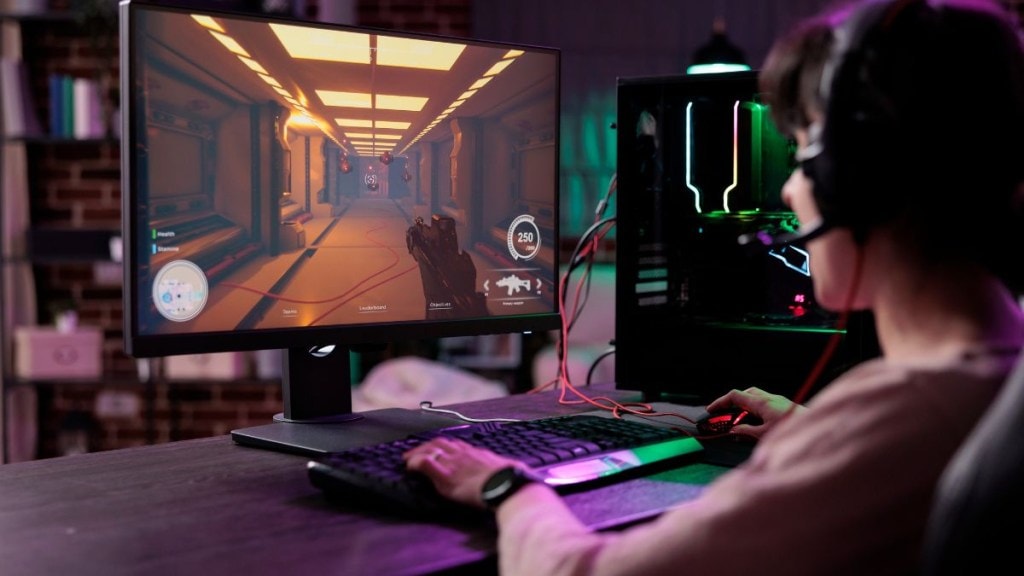Six-year-old Vedaant and his 12-year-old sister spend an hour on their tablets every evening after school. Unlike some of their peers, they are glued to artificial intelligence and generative AI classes. Coding is no longer the gold standard when it comes to tech learning for children. In what appears to be the next wave in edtech, AI, Gen AI, and machine learning courses are seeing a spike in interest among the 6-15 age group. And edtech startups are quickly stepping up to meet this demand.
AI learning programmes for students
Companies like BrightCHAMPS, eduSeed, Smart Tech Junior, Codingal, Codevidhya and GeSetLearn are offering structured programmes designed specifically for younger learners. The curriculum often begins with simple concepts like sequencing and pattern recognition for kindergarteners and gradually moves to block-based coding, machine learning basics and even ethical aspects of AI for older children. The pricing typically ranges between Rs 250 and Rs 600 per session, depending on whether the class is a group session or a one-on-one, and most courses run over 30 to 150 one-hour sessions.
The current favourite among both parents and students is the generative AI course, which moves beyond theory and into building projects like chatbots, game design, content creation, and image recognition included.
“There’s a definite sense of parents worrying about their kids not learning AI, which most urban parents now understand to be a critical life skill for future-readiness,” Ravi Bhushan, founder and CEO of BrightCHAMPS, told Fe. The startup launched a separate Gen AI programme in 2024, which has since evolved to keep pace with new tools. “Currently, about 20% of our 6-14-year-old student base is enrolled in the Gen AI course,” Bhushan added.
Increasing popularity of AI courses
BrightCHAMPS has seen a 4x jump in AI-related course enquiries from parents of children aged 11–15 in just the last six to seven months. According to a recent report by the company, 50% of parents feel that traditional school education alone doesn’t sufficiently prepare their children for the future, while a third of parents globally believe AI/ML and robotics will be the most important skills for kids over the next decade.
At eduSeed, a Chennai-based edtech startup, AI in Robotics and AI with data science using Python are the most popular courses currently. “We launched our first AI course for kids in 2022. Today, 12% of our sales come from AI programmes designed for this age group,” said founder Sasi Dharani. The company has seen a 25% growth in users over just the last month. Dharani attributes this to both increased parental awareness and children’s natural curiosity. “They’re growing up with AI all around them like voice assistants, content recommendations, even AI-generated homework help. They want to know what’s behind it,” he said.
Codevidhya, another player in this space, has created AI-enabled ICT books for classes 1–8 and is running bootcamps on Gen AI for non-coders. It has also introduced beginner-level ML modules tailored for younger learners. Over the past year, these initiatives have led to a 40% year-on-year jump in learner engagement, especially from students in classes 6–12. The startup says that both school partnerships (B2B) and direct-to-consumer enrolments (B2C) are fuelling this growth.
Early AI exposure, startups say, isn’t just about future careers. Parents see it as a competitive edge in academic Olympiads and AI hackathons. And with schools slow to formally adopt Gen AI learning, parents don’t want their kids to fall behind.
“Schools are curious but cautious,” said Akshal Agarwal, co-founder of Naturenurture, which helps K-12 schools build integrated learning ecosystems. “We haven’t seen a major uptick in requests for Gen AI-specific modules so far. But some schools are testing the waters with pilot projects or co-curricular activities. They are not yet ready to overhaul the curriculum,” he added.
What’s striking is the surge in demand from Tier 2 and 3 cities, where access to quality AI education has long been limited. “We are solving the accessibility with quality issue, which is one of the biggest obstacles in Tier 2 and 3 cities,” Bhushan of BrightCHAMPS noted.








